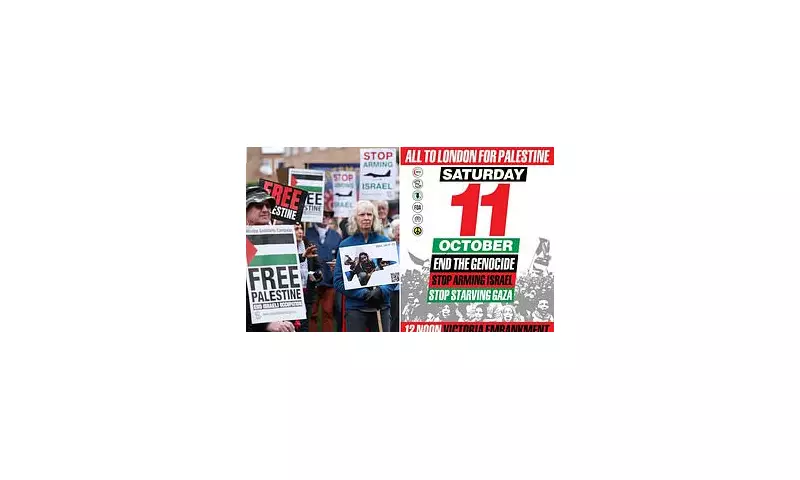
Organisers of Saturday's pro-Palestine demonstration in central London are facing a significant backlash after pressing ahead with their planned march on the very same day that a temporary ceasefire agreement was reached in the Middle East conflict.
The timing of the protest has drawn sharp criticism from various quarters, with many questioning why organisers proceeded with the demonstration when diplomatic efforts appeared to be yielding results. The coincidence has sparked debates about the political motivations behind maintaining the protest schedule.
Controversial Timing Sparks Outrage
As news of the ceasefire agreement emerged, thousands of protesters still gathered in London, carrying banners and chanting slogans calling for an end to hostilities. The juxtaposition of celebratory ceasefire announcements with ongoing protest rhetoric created a confusing and, for many, frustrating spectacle.
Several political figures and community leaders have expressed bewilderment at the decision to continue with the demonstration. "When peace is being negotiated, why continue with confrontation?" questioned one Westminster insider, who spoke on condition of anonymity.
Public Reaction Divided
The public response has been sharply divided. While some protesters defended their right to demonstrate until a permanent peace is secured, others acknowledged the awkward timing.
One long-time activist told reporters: "We've been marching for peace for months, and when peace finally arrives, we're still marching. It doesn't send the right message to the international community or to those affected by the conflict."
Organisers Defend Their Position
Protest leaders have defended their decision, arguing that temporary ceasefires don't address the underlying issues and that continued pressure remains necessary. They maintain that their demonstration was about achieving lasting peace rather than responding to short-term diplomatic developments.
However, critics argue that the protest's timing undermined its credibility and allowed opponents to characterise the movement as more interested in political theatre than practical solutions.
Security and Policing Concerns
The Metropolitan Police had deployed significant resources in anticipation of the demonstration, with officers positioned along the planned route through central London. Police sources indicate that the ceasefire announcement created confusion about crowd sizes and the overall mood of the event.
Despite the diplomatic developments, security measures remained in place throughout the day, with police monitoring the situation closely as protesters gathered at traditional starting points.
Looking Forward
The controversy raises important questions about how protest movements should respond to rapidly changing political situations. As Middle East diplomacy continues to evolve, organisers of future demonstrations may face increased pressure to demonstrate flexibility and strategic timing.
The incident also highlights the challenges facing protest movements in the digital age, where geopolitical developments can transform the context of planned events within hours.





